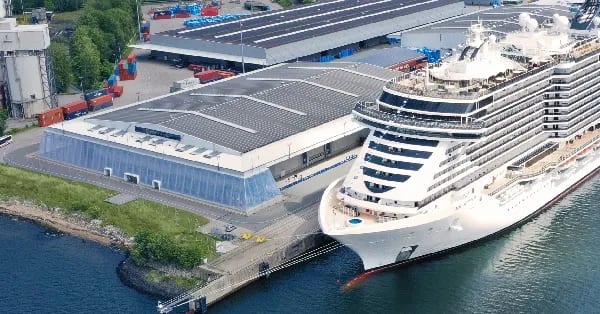
























































































































































































































Plugging into shoreside electricity enables ship engines to be switched off and reduces emissions while the ship is berthed in port.
Did you know that 40% of the global cruise fleet by capacity has been equipped to connect to shoreside electricity.

Cruise lines are investing in the development of sustainable fuel sources to reduce emissions whilst at sea.
Did you know that current innovations include preparing ships for electric batteries, advanced biofuels, and hydrogen fuel cells.
Beyond 2023, new engines and propulsion technologies are being planned or installed for new ships entering the market through 2028.

The industry’s commitment to pursue net-zero carbon cruising by 2050, announced earlier this year, is consistent with the target set by the Paris Agreement, and is supported by the industry’s intermediary objective to reduce the rate of carbon by 40% across the global fleet by 2030, compared to 2008, which is consistent with the International Maritime Organization’s (IMO) Initial Strategy for GHG reduction.

Sustainable cruise tourism helps to support the livelihoods of people in local communities, which are often rural or remote.
Did you know that this support often showcases local traditions or cultures, with economic input from both the cruise line and the visiting guests.
